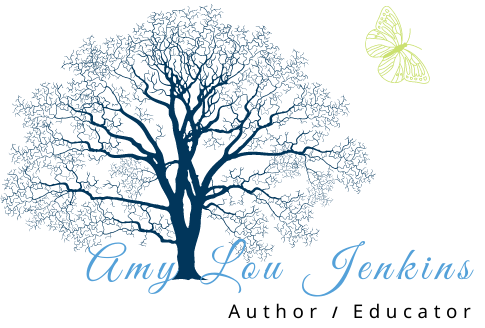
What are the Four Types of Sentence Construction?
You write sentences every day. If you haven't thought about the four types of sentence construction in a while, it's a good time to review the basic tools a writer uses to convey simple and complicated ideas.
A sentence contains a subject and a predicate and expresses a complete thought. A sentence must have at least one independent clause. An independent clause is another way to name a simple sentence. It can stand on its own.
A dependent clause can’t stand on its own, you must connect it to another independent clause. There are simple sentences (that contain one independent clause), compound sentences (which join two or more independent clauses with a comma and coordinating conjunction), complex sentences (which contain one independent clause and at least one dependent clause), and compound-complex sentences (which combine elements of compound and complex sentences).
Sentence Construction Examples
Simple sentence /independent clause
We never fail.
Compound sentence
We never fail, and we don’t mind mistakes.
Complex Sentences
We never fail because we consider mistakes to be part of the winning process.
Because we consider mistakes to be part of the winning process, we never fail.
(Notice that when a clause begins with because or other subordinating conjunctions it does not express a complete thought and is therefore a dependent clause.)
When we failed (dependent clause), we never made enough mistakes (independent clause). Complex sentence
(Notice that when the dependent clause comes before the independent clause, it is set off by a comma.)
Compound/complex sentence
When we failed, we were afraid to make mistakes, yet we should have understood the value of getting up and trying again.
(Notice that this sentence uses two independent clauses and one dependent clause. A compound-complex sentence contains at least two independent clauses and one or more dependent clauses.)
Once you understand a sentence also known as an independent clause, you begin to understand how to join clauses to make more nuanced and complicated sentences and thoughts. Sentences are the building blocks writers use to make paragraphs, and writers should understand the nature of the tools they use. When you are editing examine how you vary sentence structures for effect. Use all your tools when you build your stories, articles, and essays.
Sentence Construction Types Punctuation Rules

Knowing the punctuation patterns of the sentences will keep you from creating comma splices or run on sentences. The punctuation rules do require some grammar knowledge.
A compound sentence joins two independent clauses with a comma and coordinating conjunction (FANBOYS). Alternatively, a compound sentence joins two independent clauses with a semicolon.
The dog buried his bone, and he dug it up again.
The dog buried his bone; he dug it up again.
Notice what happens when we rewrite the sentence so it is no longer compound. Without the pronoun "he" the second half of the sentence doesn't have a subject.
The dog buried his bone and dug it up again. No comma is indicated for this sentence.
Now we have one independent clause with a longer predicate. Adding a comma when not joining two independent clauses is one of the most common comma mistakes.
Complex Sentence Punctuation
 Complex sentences have subordinating conjunctions. When a clause begins with a coordinating conjunction, it can not stand on its own.
Complex sentences have subordinating conjunctions. When a clause begins with a coordinating conjunction, it can not stand on its own.
Jefte is usually thrifty.--A simple sentence also known as an independent clause.
Although Jefte is usually thrifty, Adding the subordinate conjunction makes this a subordinate or dependent clause.
A subordinate clause must be attached to an independent clause.
Although Jeffte is usually thrifty, he buys expensive dog toys.
Jefte buys expensive dog toys although he is usually thrifty.
If the sentence begins with the subordinate clause, you set it off with a comma. No comma is needed if the subordinate or dependent clause comes after the independent clause.
Although these are basic grammar rules, many highly educated professionals are so far removed from this education that the fundamentals of sentence construction types aren't as well-known as one might imagine. Understanding the sentence construction types and the punctuation rules is fundamental to English grammar.
Create a Family Cookbook: Turning Memories Into Tangible Treasures I’ve always been enamored by the power of words to enhance the meaning of lived experience. I treasure handwritten letters … Read more
Begin Your Memoir: With or Without Prompts The Pros and Cons of Using Writing Prompts in Memoir Writing How does a Memoir writer begin? How does a writer pull … Read more
Keep Writing: Conquer these Five Momentum Stoppers Writing can be profoundly fulfilling, yet many writers find themselves stuck, unable to translate their ideas into words. You can break free … Read more
Find The Story Of Your Memoir and Begin Two Day Challenge– Free with Gifts and Coupons to our Complete Memoir Course. Click Here To Register What’s going to happen … Read more
Begin Your Memoir: Two-Day Challenge Are you a writer or an aspiring writer with a treasure trove of life experiences waiting to be shared? Have you ever thought about … Read more
Writing Beyond the Anecdote: Crafting a Resonant Personal Essay Transform an anecdote into a personal essay. For many writers, the personal essay begins with a vivid slice of life … Read more
This Father’s Day…. Your Gift of Writing Can Become the Best Gift Ever For More than Fathers Day DIY Gift Giving: The Write-A-Gift Launchpad Course inspires and gives you … Read more










